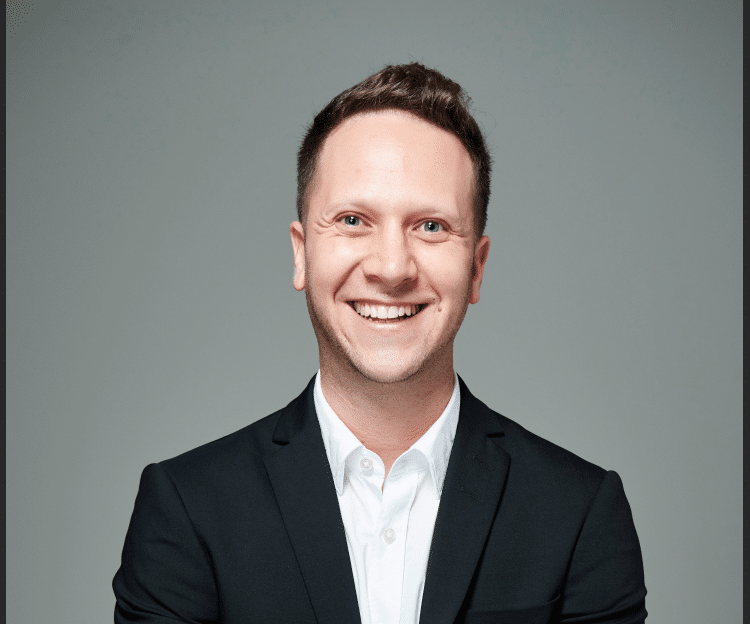Alon Lits, the former General Manager of Uber in sub-Saharan Africa, is giving new direction to the digital marketplace with a mental health support app named Panda.
“The regulation that governs transport is often outdated – it predates smartphones. It’s never contemplated a world where you can use a smartphone to tap a button and get a car – regulation lags innovation.”
If you’ve followed the evolution of the gig economy in South Africa, it’s hard not to have come across Alon Lits’ name.
The first Director and General Manager of Uber in sub-Saharan Africa, Lits joined the multinational mobility service provider in its earlier years of expansion, and now brings his expertise and skills to a new venture aimed at combating mental health through an app called Panda.
Lits is eloquent in describing his professional history, which began with his tertiary training in actuarial science, before moving into the venture capital space after obtaining an MBA. However challenging the work, Lits found himself looking to pursue a greater passion after working with V-Prime Investments, which was focused on micro-insurance opportunities.
Lits was approached by Uber to take over as the General Manager of southern Africa in 2013, at a time where Uber’s innovation globally was being recognized – making USA Today’s Tech Company of the Year – but still a far cry from the transport conglomerate we know it to be today.
Lits reported directly to then-CEO Ryan Graves, with one objective – growth.
“In my first six months with the company, he [Graves] just said to me, he wants us to be doing 2,000 trips a week in Johannesburg… but the growth that we saw, at our peaks, we had millions of riders and over 60,000 drivers using the app… You can imagine the scale that we had across the continent…” says Lits.
Valid controversy surrounds the spread of the so-called ‘gig economy model’ and Lits talks to the fact that in South Africa, the old way of giving people jobs is not working.
“We need new innovative ways to provide people with income-earning opportunities,” says Lits, while acknowledging both the flexibility that gig work provides and some of its risks – as well as the steps that companies such as Uber have taken to mitigate them, but that legislation needs to play its role as well.
“The regulation that governs transport is often outdated – it predates smartphones. It’s never contemplated a world where you can use a smartphone to tap a button and get a car – regulation lags innovation.”
Innovation is where Lits thrives, bringing his experience with both distributed work marketplaces and data analytics to bear with initiatives such as Aura, which offers on-demand emergency service responses across the country and is beginning to expand into international markets.
However, it’s Lits’ latest project, the Panda app, which gives him the most excitement, bringing the same expertise and data to the mental health space. With his co-founder and partner Allan Sweidan, who previously co-founded and ran the Akeso Group of Psychiatric Hospitals, he aims through Panda to assist some of the 80% of South Africans who lack easy access to mental health services.
“My wife’s a clinical psychologist,” says Lits, “My mom’s a social worker… so I’ve always been surrounded by experts in the space and have a huge amount of inner admiration for the work that they’re doing, the impact that they have in this world. Panda presented this unique opportunity to try and do something in the space.”
Panda does this through both specialist and community-based mental health support – users can engage with others who are facing similar challenges, which focus on specific loci such as depression, anxiety, financial stressors, amongst other categories.
“My wife’s a clinical psychologist. My mom’s a social worker… so I’ve always been surrounded by experts in the space and have a huge amount of inner admiration for the work that they’re doing, the impact that they have in this world. Panda presented this unique opportunity to try and do something in the space.”
Direct access to validated scientific tools through the app also allow for users to monitor their mental health and wellbeing over time, allowing users to track their progress and development. Most crucially, the app also allows for direct access to chat sessions with verified mental health professionals.
“…there’s definitely a marketplace first and foremost with Panda… So this is where I think that the Uber experience becomes relevant. So, we’ve contracted with a few different mental health professionals who will be running sessions every day from 10AM until 10PM,” says Lits. The app “soft-launched” as free, but will look to making some features paid from 2022.
Incorporating data analytics into the mental health support space seems a natural progression for Lits, and Panda seems set to grow while providing valuable support to South Africans in dire need of assistance.
“We’re really trying to make mental healthcare and support more accessible by leveraging technology… to get data in real time and inform decision-making. How can we leverage data to ensure that there’s an individual who’s dealing with anxiety, who went to a particular session with a particular expert, and was helped and started feeling better after that?”
From the ride-hailing business to technology driving awareness about a matter so critical in a pandemic world, the journey has begun.
